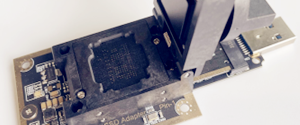SPE barrier: Limit of Technology in Hard Disks
But whether the industry can maintain these impressive economics is highly questionable. In the quest to deliver hard disks with ever increasing capacities, IBM, Seagate Technology, Quantum Corporation and other manufacturers have continually crammed smaller and smaller bits together,
which has made the data more susceptible to Super-Paramagnetic-Effect, or simply SPE. In the coming years the hard-disk technology could reach a limit imposed by this effect. Simply described, SPE is a physical phenomenon that occurs in data storage when the energy that holds the magnetic spin in the atoms making up a bit (either a 0 or 1) becomes comparable to the ambient thermal energy. When that happens, bits become subject to random “flipping” between O’s and 1’s, corrupting
the information they represent.
As one shrinks the size of grains or crystals of magnetic material to make smaller bits, the grains can lose the ability to hold a magnetic field at a given temperature. “It really comes down to the thermal stability of the media,” One researcher explains. “You can make heads more sensitive, but you
ultimately need to consider the properties of the media material, such as the coercivity, or magnetic stability, and how few grains you can use to obtain the desired resistance to thermal erasure.”
Traditionally, a minimum of about 500 to 1,000 grains of magnetic material was required to store a bit. In March 2001, IBM scientists announced a process for self-assembling magnetic particles into bits that could provide areal densities as high as 150 gigabits per square inch.) Currently researchers are actively looking for improved materials that can hold a detectable magnetic charge and resist SPE with fewer grains. Also, the industry has been developing better manufacturing processes to
decrease the impurities in the storage medium and thereby enable smaller bits.
In lieu of improvements of this type, the limit of bits per inch will remain in the range of between 500,000 and 650,000, according to a storage technologist for Seagate Technology’s research division. But this parameter, which is for data stored in a particular track on a platter, is only one determinant of areal density, which is the number of bits per square inch.
Strategies for Avoiding the SPE Barrier
The capacity-versus-performance debate could become acute as the industry considers various ways to avoid the SPE barrier. Experts agree that moving beyond areal densities of 150 gigabits per square inch will require a significant departure from conventional magnetic hard disks. Some of the alternatives boast impressive storage capabilities but mediocre speeds, which would limit their use for certain applications. At present, the main strategies include:
– Change the orientation of the bits on the disk from longitudinal (circumferential) to perpendicular, or vertical, to cram more of them together and to prevent them from flipping.
– Use magnetic materials, such as alloys of iron/platinum or cobalt/samarium, that are more resistant to SPE. If the magnetic “hardness” of the material is a problem for recording data, heat the medium first to “soften” it magnetically before writing on it.
– Use a radically different storage material, such as holographic crystals, phase-change metals, or plastic.
– Imprint a pattern lithographically onto the storage medium to build microscopic barriers between individual bits.
Although several of these approaches have attracted large investments from the leading manufacturers, most remain in the very early stages of testing. Some of the concepts await research breakthroughs or key advances in supporting technologies before work can begin in earnest on prototypes.
World’s Top Data Recovery Hardware Tools
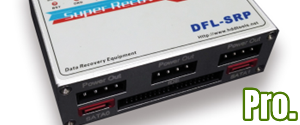
Easy to use at good price
Recover SATA, IDE, External HDDs, NVME SSDs, etc Order Now here
POTABLE DEVICE & NVME SSD RECOVERY TOOL
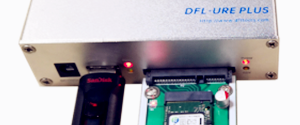
Recover USB Device and NVME SSDs at high speed! Read Details here.
DFL-PCIE DATA RECOVERY RECHARGE
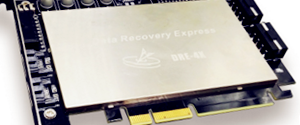
Best data recovery hardware tool to start a data recovery business, read details here
RECOVER SCRATCHED HDDS

Recover lost data from scratched hard drives, read details here.
SURFACE PRO. RECOVERY
BEST HEAD REPLACEMENT TOOLS
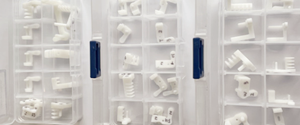
The most cost-effective head replacement tools for Seagate, WD, Samsung, Hitachi, Toshiba, Fujitsu

